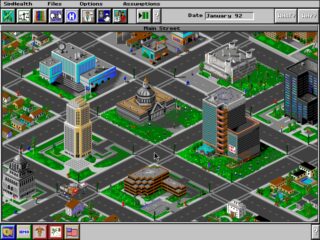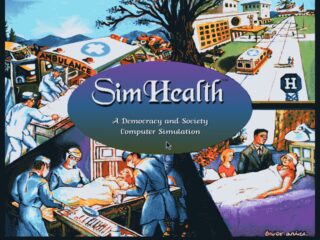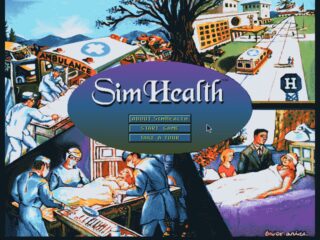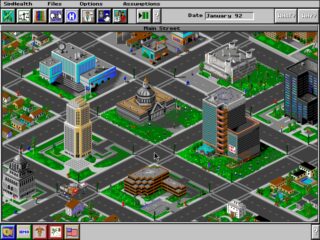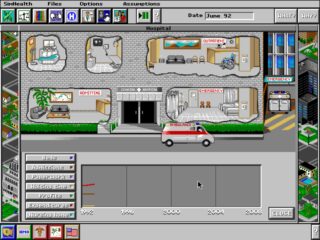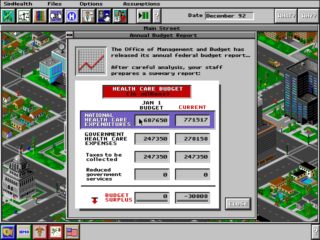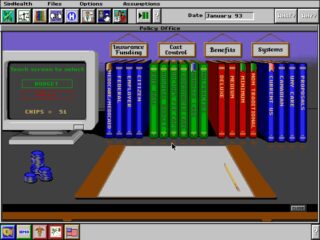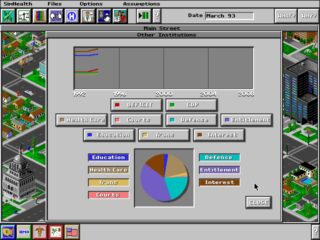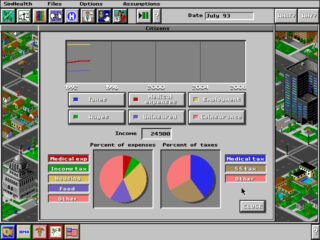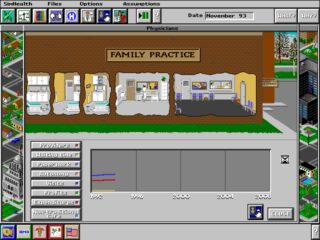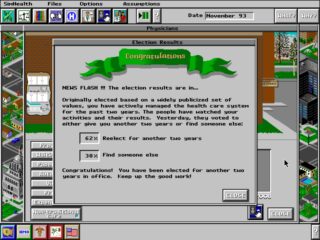SimHealth: The National Health Care Simulation is a management simulation of the U.S. Healthcare system released by Maxis in 1994 for DOS only.
SimHealth, developed by Thinking Tools, is a management simulation game that simulates the United States healthcare system. It was released during the congressional debates on the Clinton healthcare plan and is known for its complexity and difficulty. The game lacks the tongue-in-cheek humor that Maxis' other games are known for, instead opting for a more serious tone with a SimCity 2000-inspired user interface.
The game was not primarily designed as an entertainment product, which is reflected in its reception. Computer Gaming World's Keith Schlesinger noted that "SimHealth is a trailblazer in the simulations genre, but as a game, it has problems," citing not well-developed victory conditions and the ability to achieve high scores through extreme measures. Entertainment Weekly gave the game a C−, describing it as a complex and boring demonstration of the healthcare crisis.
The story behind the development of SimHealth is quite interesting. It was a product of Maxis's former business simulation division, known as Maxis Business Simulations, which later became Thinking Tools. The division was created to combine Maxis' engaging game interfaces with complex behavior modeling. SimHealth was produced in collaboration with the public innovation non-profit The Markle Foundation and was marketed as "a tool for national debate" rather than a fun game. The goal was to enlighten people on the complexity of healthcare reform and to serve as a hands-on learning tool for tackling hot-button issues.
John Hiles, the head of Maxis Business Simulations and later Thinking Tools had a background in complex behavior modeling. His team produced simulations for specific companies and general business and management games to challenge orthodoxy and inform public discourse. SimHealth embodies the potential and danger of using games as educational tools for public policy and debate.
In terms of gameplay mechanics, the player acts as a policymaker, making decisions that affect the health of a simulated population. You can implement various health policies, ranging from insurance reforms to medical research funding. Each decision impacts the game's complex simulation of healthcare economics and population health. Managing the budget is critical. You must balance the costs of healthcare policies against the available funds, which are influenced by the economy and tax rates.
The game features an underlying mathematical model that simulates the consequences of the decisions. You can also adjust the assumptions of this model to see how different theories about healthcare economics play out.
You will also need to navigate the political environment, as different stakeholders (like hospitals, insurance companies, and patient groups) will react to policy changes, affecting the player's popularity and re-election chances.
If you are looking for a serious simulation and you like politics, this is really a game you should try.

